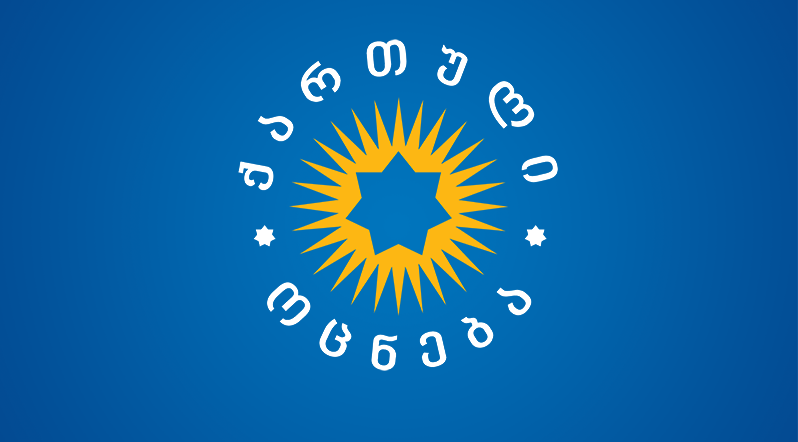
In a bid to reach an agreement with the opposition, the ruling Georgian Dream (GD) party shows readiness to kick off discussions over increasing the 40% indicator of confidence in the upcoming local elections.
GD claims to be the decision-making force, with utmost support in the democratic elections.
The ruling team says GD made a responsible step and publicly signed an EU-back compromise paper following the first failed phase of the talks, but the opposition rebuffed to do so.
“Taking into account that today our country faces serious challenges precipitated by the pandemic and the geopolitical situation in the region, we are aware of the responsibility before our compatriots, our country, and the international community.
The Georgian Dream is a decision-making force that fairly received the highest support in the democratic elections. This is precisely why we are paying close attention to our partners’ advice and suggestions to reach an agreement and we are ready to start a discussion with the team about increasing the 40% indicator of confidence, which was determined by the Constitution and electoral legislation, with the support of the same opposition, in compliance with the March 8 Agreement,” GD stressed in its official statement.
At the same time, the ruling party explains that enclosing Giorgi Rurua’s dismissal in the agreement is a gross example of political interference in the judiciary.
“We would also like to express our position regarding G. Rurua – he is neither a politician nor a key figure in any possible breakthrough in the political process. The inclusion of the issue of his release in the agreement between the parties is an example of gross political interference in justice. Taking into account the existing reality and the attitude of our partners, we will not express our critical position if the President of Georgia grants him clemency.
We are taking these steps together with our international partners, the European Union, and President Michel, whom we thank for the steps and efforts aimed at the improvement of the political situation, with the condition that it will once again be clearly stated that the 2020 parliamentary elections were conducted in accordance with the principles of fair and democratic elections, as reflected in the final report of the OSCE/ODIHR international observation mission and for the purpose of which European structures will be involved in the commission that was set up for the assessment of the 2020 parliamentary elections.
Also, our decision about the prisoners, whose release is demanded by the opposition, is based on the necessary condition that political interference in any criminal case will be ruled out in the future,” GD noted.
GD believes international experts in the field of law should evaluate the ongoing cases, the so-called Khazaradze-Japaridze case, and the Gvaramia case in a bid to exclude the possibility of a political solution to these cases.
“There are two other ongoing cases – the so-called Khazaradze-Japaridze and N. Gvaramia cases – where in the first case, the persons who were under investigation and who are subjects of legal proceedings created a political party after the investigation and took refuge in their political status, while in the second case, the person, who is also a subject of legal proceedings (he was the deputy general prosecutor under the previous government) created a television station and is attempting to acquire immunity through journalistic activities. These cases should be assessed with the involvement of international legal experts, in order to rule out the possibility of political decisions in the given cases and to assess them solely in line with legal standards. We believe that this rules out all subjective perceptions among the public about whether or not these cases are politically motivated,” GD said.
GD claims the Georgian judicial system significantly improved in terms of independence and justice, approved by the rankings of the World Bank and the Heritage Foundation.
“We believe that during these years, the Georgian judiciary, courts, and the Prosecutor’s Office – which have undergone significant reforms and qualitative improvement – have been subjected to biased and motivated attacks from the opposition and their affiliate media with the aim of discrediting these institutions. Georgian courts and judiciary have improved significantly in terms of independence and fairness, as evidenced by international ratings from the World Bank and the Heritage Foundation, which rank Georgia’s judiciary system in Europe’s top 20, ahead of several EU member states, while according to the survey by IPSOS France, trust in the judiciary is above 50% among the Georgian public, which is close to the level of developed EU states. Naturally, the principle of 2/3 provided in the agreement document must be clarified and written out in accordance with European practice, so as to avoid political interference in the process and to prevent it from being blocked.
Taking into account that we signed the first document that was presented by the European Union and are committed to discussing the updated document as well, we will not make any more adjustments to the conditions and we will not agree to any substantial additions after signing the updated document. With this, negotiations on the terms are over on our part and we call on the opposition to take responsible steps,” the statement said.
The ruling Georgian Dream party publicly signed the compromise solution prepared by the European Council President Charles Michel’s personal envoy Christian Danielsson. Georgian opposition parties refused to sign the paper.
President of the European Council Charles Michel published a new proposal made to Georgian political parties on Sunday.
Georgian opposition parties that won seats in the Georgian Parliament of the 10th Convocation believe the 2020 parliamentary elections were a fraud. They have been demanding repeat parliamentary elections and the release of the United National Movement Chair, Nika Melia, and the co-founder of the TV channel Mtavari Arkhi Giorgi Rurua.
The second EU-mediated attempt to solve political crises in Georgia failed. EU mediator Christian Danielsson proposed a solution to political actors on March 31.





